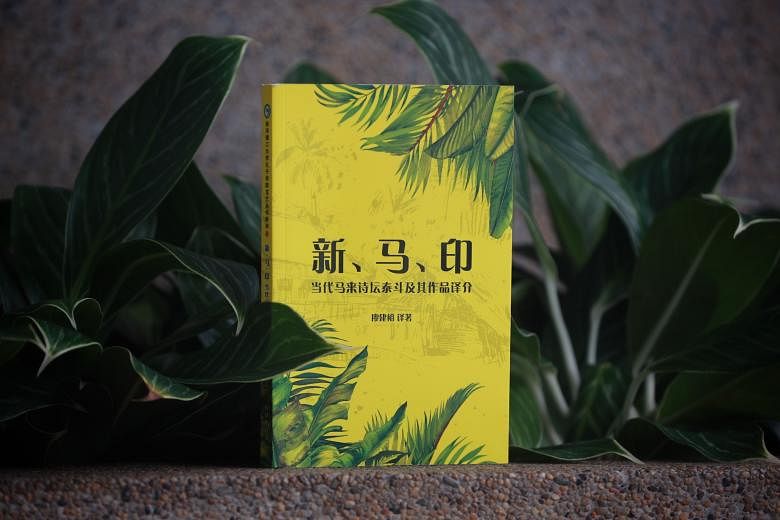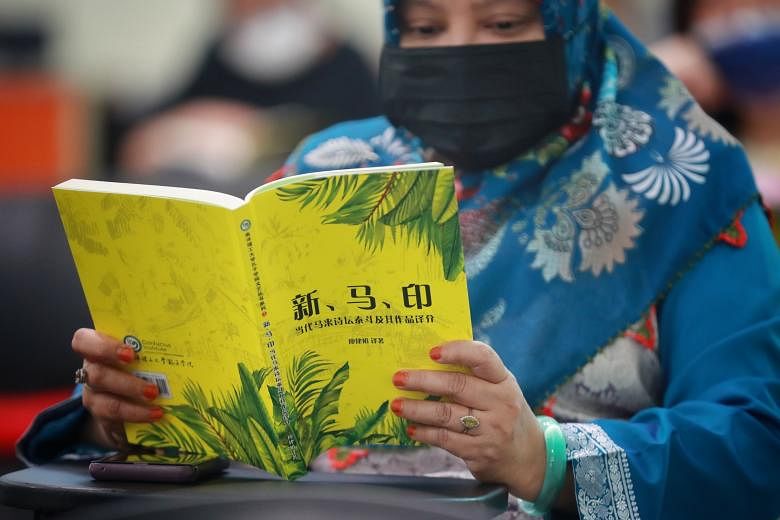SINGAPORE - Ever since he was a schoolboy in Jakarta, Dr Leo Suryadinata, 81, has been translating poetry from Bahasa Melayu and Bahasa Indonesia into Chinese.
And now thanks to him, many works by four contemporary poets have been translated into Chinese in a new book titled Major Malay Poets In Singapore, Malaysia And Indonesia.
The book was launched at the National Library Building on Saturday (Feb 26) and contains poems by Masuri S.N. from Singapore, Usman Awang from Malaysia, and Chairil Anwar and Gus Mus, both from Indonesia, in their original languages and accompanied by their Chinese translations.
Dr Suryadinata was born in Jakarta in 1941 and moved to Singapore in the 1950s to study at Nanyang University.
The political scientist and sociologist told The Straits Times that he sees translation as an important bridge between cultures.
He said: "In our multi-ethnic society, I've always wanted to play the role of a jambatan (Malay for bridge) between Malay and Chinese cultures.
"Sometimes, the language barrier can be an obstacle to understanding, and that is why translating literary works is so important, because they obtain the core of a culture and communicate the beauty of a language."
At the launch event, organised by the Confucius Institute at Nanyang Technological University (NTU), which published the book, NTU students recited a selection of the poems in their original languages and then the Chinese translations.
The book took Dr Suryadinata about four years to complete. In it, he also introduces to a Mandarin-speaking audience the lives of the poets and the historical contexts in which they were writing.
He recounts how Chairil died of an unconfirmed disease in 1949 at the young age of 26 but his 70-odd published poems eventually became hugely influential.
He also writes about the influence of Masuri, widely considered a pioneer in modern Malay poetry, and how, as a young student in the 1950s, he was impacted by the Singapore poet's work.
South East District Mayor and Marine Parade GRC MP Mohd Fahmi Aliman, who was the guest of honour at the launch, told The Straits Times that translation work is important to building inter-ethnic harmony.
He said: "This (translation) is an important tradition that young people can hopefully continue."
This is not the first time that Dr Suryadinata, a former director of NTU's Chinese Heritage Centre, has translated Malay poetry into Chinese for publication.
In 2015, he put together a smaller collection called Singapore, My City And Home, which was also published by the Confucius Institute.




